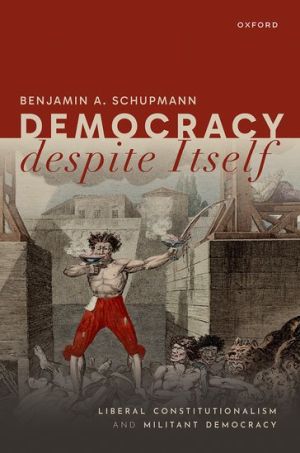
Recent developments, including anti-democratic moves by governments in Hungary, India, and Turkey and the rise of populist leaders, demonstrate the threat posed to democratic values by legal revolution and other acts committed within the confines of the system. Militant democracy, a form of constitutional entrenchment, can protect these values from the harmful influence of illiberal regimes. However, critics and proponents alike wonder whether these tactics risk undermining democracy in the process of trying to save it.
Democracy despite Itself advances a liberal normative theory of militant democracy by combining American philosopher John Rawls' political liberalism with German jurist Carl Schmitt's state theory. It argues for the adoption of three constitutional mechanisms of militant democracy-explicit unamendability, political rights restrictions, and the guardianship of a constitutional court-to prevent the subversion and erosion of democracy by the abuse of legal measures. Rawls' thought provides the substantive democratic content of this theory, establishing basic liberal rights as a precondition for legitimate government. Schmitt's thought provides the militant political form, justifying the state's use of proactive militant measures to preserve the political identity of its constitution.
This blending of works by two thinkers rarely regarded as complementary is a novel approach that offers a compelling vision for how liberal democracy can be protected from anti-democratic actors.>